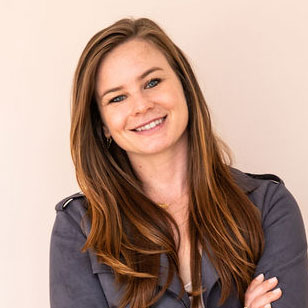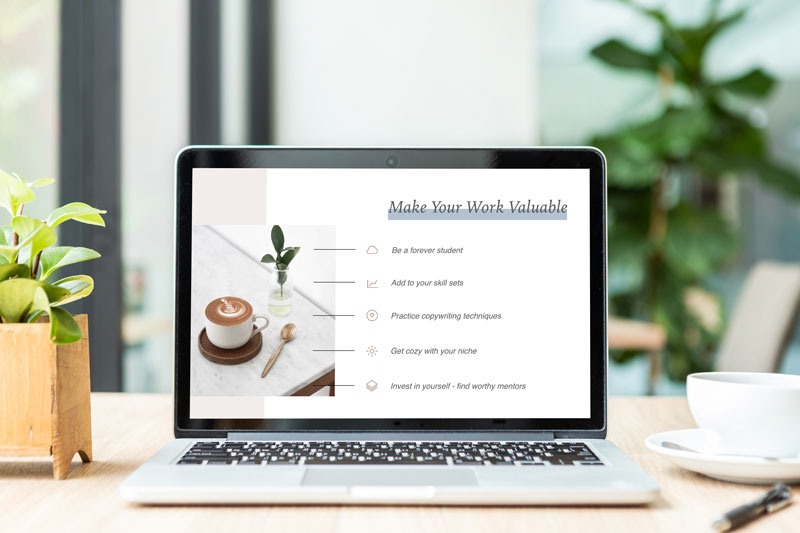
What’s Missing From Our Quarantine Routine and How to Get It Back
Written By: Abby Adelle
There aren’t many articles that can truly make me laugh-out-loud.
So when I found myself laughing from this one sentence online, I was intrigued. So much so, that this blog post was born.
The humorous truth of it led me down a rabbit hole. Specifically, related to optimizing time during a pandemic. (That’s not the funny part).
(And before I tell you what it was about, you need to know that mentally and physically, I love easy and effortless activities).
I want you to know that my spirit animal is a sloth. That Lazy rivers – which were created by theme park architects who had to solve the problem of leisure-paced tourists who sat around people-watching congesting their parks – were made for people like me.
So…when I read that Newton was sent home from Cambridge because of the plague and just invented Calculus1, I yelled-laughed, scaring my husband, as my timer went off to for me to reposition myself to prevent bedsores.
My quarantine started at the end of my maternity leave. I came back to work at the hospital after three months of enjoying doing whatever I wanted at whatever pace I wanted.
Take a run? Sure.
Actually – make it a walk? Absolutely.
Just stare at the sleeping baby? Yes, please.
The nightly anxiety I used to push through before work – was gone. I hadn’t realized it was anxiety until I didn’t have to clock in at my job for twelve blissful weeks.
What I used to unconsciously judge as boring, was now freeing… and peaceful. All the mundane, little parts of my day as a human, made me so happy.
And there wasn’t a lot I found on the interwebs about “quarantine making you happier than going to work.” There was a lot the internet had to say about my resting, exercising, redecorating, or being nice to myself.
Disclaimer: I know that quarantine was hard for most people and I’m not trying to convince you otherwise – but for me, it was a blessing in disguise.
But what I did want to know was – what if the same boredom that made Newton create another category in math, could also make me grow into a better version of myself?
What Is Pandemic Productivity Pressure?
My rabbit hole of a Google search taught me that Newton was not alone.
Mary Shelley, wrote the classic gothic novel, Frankenstein, while stuck in a friend’s house during a torrential downpour.2
Shakespear also got in on the quarantine creativity action. He wrote the playwright, King Lear, while in quarantine (as per usual in the 1600s).
Which brings us to modern-day. Taylor Swift supposedly created her unexpected album, folklore because of the COVID-19 isolation mandate.
My slothy self felt deflated by my lack of “achievement” – even though I knew I was happy being at home. Where was my pandemic masterpiece? And how had I suddenly been emotionally hijacked to want one?
And at the end of the night, hours later, I found evidence proving these quarantine creatives might not be one-of-a-kind prodigies. They might not have been productive hustlers, afraid their lives would have no meaning if they didn’t creatively contribute a legacy piece in their name.
Very simply put, they did not have as many of the distractions (and comforts) we now have to pass the time. It takes a lot of mind work to prioritize our lives nowadays.
We have hundreds, if not thousands, of binge-able shows that are always waiting for us. Games to play online and instant pathways to communicate to anyone that lives almost anywhere in the world. Leaving us deprived of our daily serving of boredom.
I’m not here to convince you to throw all your electronic devices into your bathtub (filled with vindictive bathwater and bubbles) and live in a yurt.
But if the secret to productivity during a pandemic – and every season of our lives – is at stake, shouldn’t we at least know what it’s costing us?
If that’s the secret to inventing math, it means it has more to do with being bored than being born a genius.
How To Appreciate the Gift of Boredom
I slowly found out, this was not a new idea.
Andrew Sullivan, who wrote a thorough piece about not making space for boredom, had to drastically change his “always-on” mentality and soon realized “perhaps the only ‘safe space’ that still exists is the shower”…5
Other journalists and researchers that wrote to this lack of boredom in our culture used more serious words, describing our problem as:
- performative workaholism
- work zeal
- an always-on culture
- a cult of productivity
- rise and grind
- burnout generation.6
New medical conditions have been discovered because of this. Where we think our phone ‘buzzed’ but in reality, it didn’t, is now called phantom vibration syndrome.7
Sadly, this difficulty in separating from our jobs and the technology that connects us to it means it’s become normal to either be “on the clock” or on call. To turn every moment into something that can be profitable, useful – where “every nanosecond of our lives must be commodified” to have value.8
In a 2014 study, people were tested for their ability to sit alone. Without phones or watches or anything to pass the time. They did have at their disposal, a button that would give an electrical shock painful enough the subjects said they would pay to not get shocked by.9
Surely you’ve guessed the ending by now.
70% of men and 25% of women chose to get shocked. So, to these people, physical pain is better than boredom.
Our Go, Go, Go generation is NOT OK with boredom. Stick us in quarantine and the resources are endless to help us cope with inactivity.
But reading about the quarantines of Shelley and Newton made it very clear their experience of boredom and unintentional productivity in their daily mundane lulls, resulted in creating honest works of art. (I know. But for the sake of architects who use math to create impressive buildings, we must call it art.)
So, despite all the scientific research urging us to not see ourselves as a resource to be expended6, we still disbelieve that boredom is better.
And no, taking breaks doesn’t count.10 It’s been proven we are more productive after engaging in mindless activities as a result of boredom.11 We are more refreshed – more creative – scientists conclude, after folding laundry, pulling weeds, or painting a white wall in eggshell.
When David Heinemeier Hansson, a software company co-founder was interviewed, his bafflement about our current work ethic was clear, stating it’s been proven that “long hours improve neither productivity nor creativity”.6
Andrew Sullivan’s article shared another relatable quote for us. A comedian was asked why his kids don’t have cell phones. He gave his answer and then concluded, “…that’s why we text and drive … because we don’t want to be alone for a second.”
We would prefer to get shocked or drive distractedly than be alone.
How to Fight Productivity Shaming
There is an always flickering neon BUT, flashing in our heads, interrupting our social media scroll as we read any self-care advice captions.
So why do we feel pressured to be so productive and “make the most of this time”?
As we visually absorb success stories of Shark Tank entrepreneurs, facts about how our grandparents’ generation bootstrapped their businesses out of poverty and without technology, more celebrity award ceremonies, and clips of jaw-dropping millionaire mansions on Tik Tok – the shame is real.
Here’s one example:

(If you’re interested you can read why this tweet is damaging to believe).
But the point is, this mentality is what shames most of us because what it’s not saying is to work hard to achieve your dreams.
More like: we are only worth what we produce.
Our excessive work ethic has been exposed as a way to prove our worth and even as a defense mechanism.6,14
We can admit (can’t we?) that our state of perpetual productivity is alarming. Feelings of shame can’t be tamed with breaks or long vacations, either. They are tied to something deeper. Shame researcher, Brené Brown explains it this way: “You either walk inside your story and own it or you stand outside your story and hustle for your worthiness.”
So how do we ditch the shame for good and build a slower, less “always-on” routine?
True Quarantine Productivity
What’s worked in the past is what Shelley and Newton and Swift all have in common.
Simply put,
They.
Were.
Bored.
Locked in a friend’s house. Sent home from college. In quarantine with a guitar silently staring back.
I was nearing the end of my rabbit hole. My eyes were heavy, and the last thing I wanted to read was a post where Sarah had written about her tipping point.
How it’s the little moments in life that look insignificant until we make a different decision only to look back in amazement at how everything else in our lives changed from that point on.
Boredom can give us those little moments. Distraction makes us miss those opportunities.
No matter how we’ve individually managed to cope through quarantine, this is more about making space for solitude to change our growth mindset than being monk-level introspective.
In this global pandemic (just this one, not the next one), it’s not good enough to only be positive. To aim for a silver lining or a window of opportunity.12 Seeing things in a positive light is different than growing and making a decision for the better.
What if Taylor Swift’s true accomplishment during the pandemic was not that she made an album, or even made an album quickly, but that she learned how to share a musical story through the folk genre?
What if Newton changed because his perception of the world expanded once he discovered how to calculate and predict mathematical sequences through calculus?
And what if Shelley’s accomplishment was in proving equality to her male peers and the importance of morality in her own life?
The value Swift, Newton and Shelley added to our culture, academia, or to people they inspire, cannot be measured. Their goal was not to please the world with productivity but to enjoy the work and toil for themselves. Their journey was not pressured but cherished.
Creativity was their happy side effect of boredom. It was never genetically endowed to them.
I clicked the home button and planted my phone face down on my nightstand.
Whether introverted or extroverted, working at home or in a socially distanced office, making lots of home improvements, or finishing a workout challenge… this quarantine has tested us and we’re all still trying to figure ourselves out.
But however we are “productive”, experiencing a perfect quarantine is simply not possible.13
It’s not a competition.
Just a rabbit hole turned tipping point opportunity.
Sources:
- https://www.biography.com/news/isaac-newton-quarantine-plague-discoveries
- https://edubirdie.com/blog/romantics-and-victorians
- https://www.stlmag.com/history/shakespeare-in-the-time-of-quarantine/
- https://www.wired.com/story/taylor-swift-folklore-album-date-release-pandemic/#:~:text=%E2%80%9CMost%20of%20the%20things%20I,of%20mine%2C%E2%80%9D%20she%20wrote.
- https://nymag.com/intelligencer/2016/09/andrew-sullivan-my-distraction-sickness-and-yours.html
- https://www.nytimes.com/2019/01/26/business/against-hustle-culture-rise-and-grind-tgim.html
- https://www.npr.org/sections/alltechconsidered/2013/09/30/226820044/phantom-phone-vibrations-so-common-they-ve-changed-our-brains
- https://www.nytimes.com/2020/04/01/style/productivity-coronavirus.html
- https://science.sciencemag.org/content/345/6192/75
- https://www.womenshealthmag.com/life/a19928105/how-mindless-tasks-will-boost-your-brainpower/
- https://www.psychologytoday.com/us/blog/the-winner-effect/201401/embrace-boredom-become-more-creative
- https://www.forbes.com/sites/ravaldavis/2020/04/21/to-be-productive-during-a-pandemic-or-not-to-be-ask-a-productivity-coach-not-the-internet/#9e48ab774066
- https://grottonetwork.com/make-an-impact/transform/low-productivity-in-quarantine/
- https://newrepublic.com/article/156929/work-home-productivity-coronavirus-pandemic
More about the author: Abby Adelle is a copywriter based in Denver. She’d like it to be known she only tolerates internet rabbit holes and would never disturb a real rabbit’s home. Her tipping point is usually a slow internet connection.







